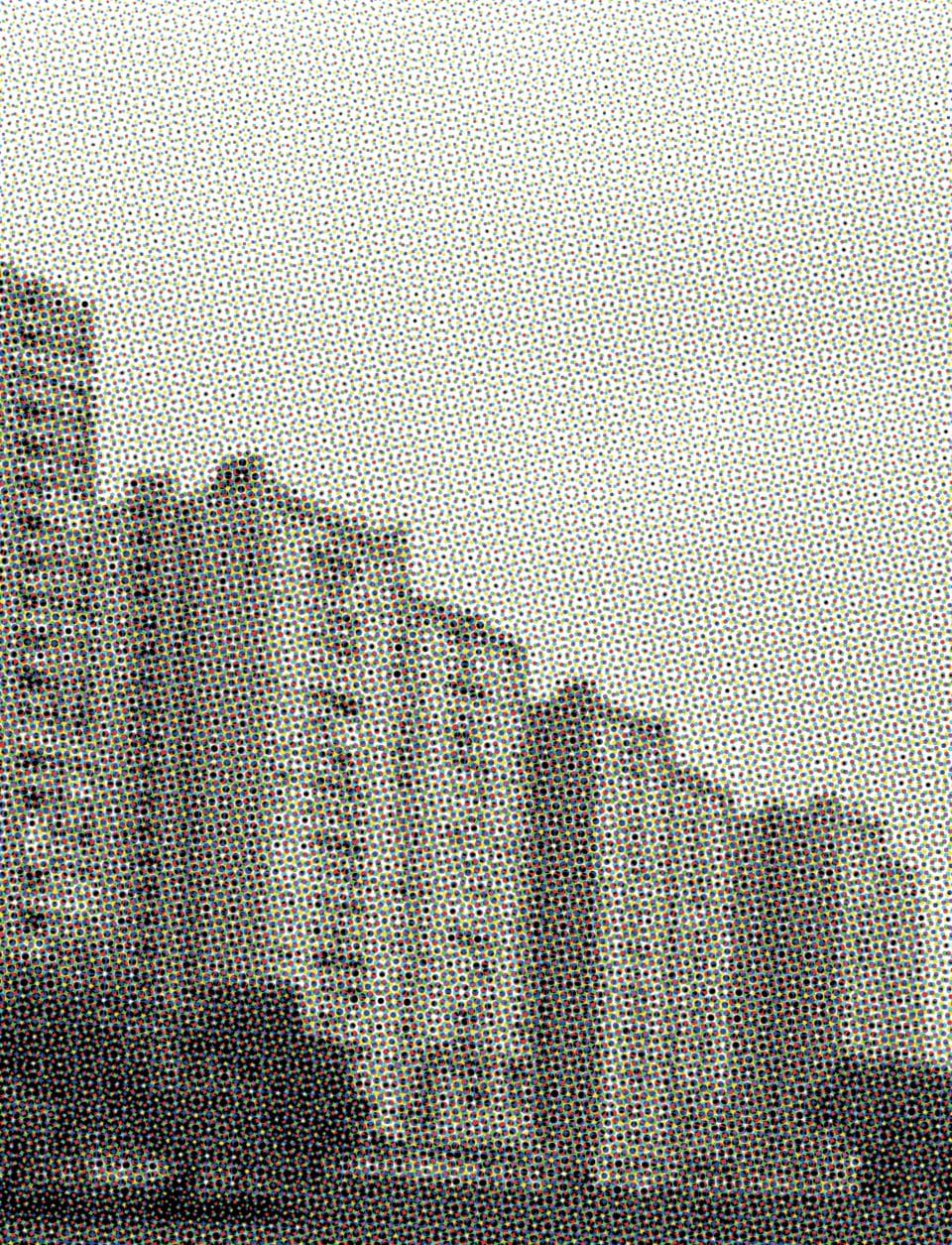
With the Metaverse on its way, researchers have discovered the boundless opportunities it presents for urban planning and future smart cities. Djoko Prihanto, Chairman of the Singapore Institute of Planners and director at DP Urban, leans us in on his thoughts on the possibilities both in Singapore and abroad.
Fiction has long borrowed the idea of “another world” from mythology, legend, and religion. Heaven, hell, Olympus, and Valhalla are all ideas of alternate realities that have fascinated and tackled the movement of thinking and philosophy, with creative ideas poured intensively through art, literature, and eventually films on separate realities that could exist outside the plane of our universe.
Towards the end of the previous century, the advent of computer access and the space race punctuated speculations that we indeed inherited the ability to tap into new technologies to develop our parallel universes. Films such as The Matrix and Paprika play out this scenario perfectly despite displaying the horrific consequences of such quests — developing into a genre known as science fiction.
Far from fiction, however, were engineers and developers who have slowly perfected the mechanisms to achieve this dream with the rise of highly-rendered video games, virtual reality headsets and the widespread use of social media.
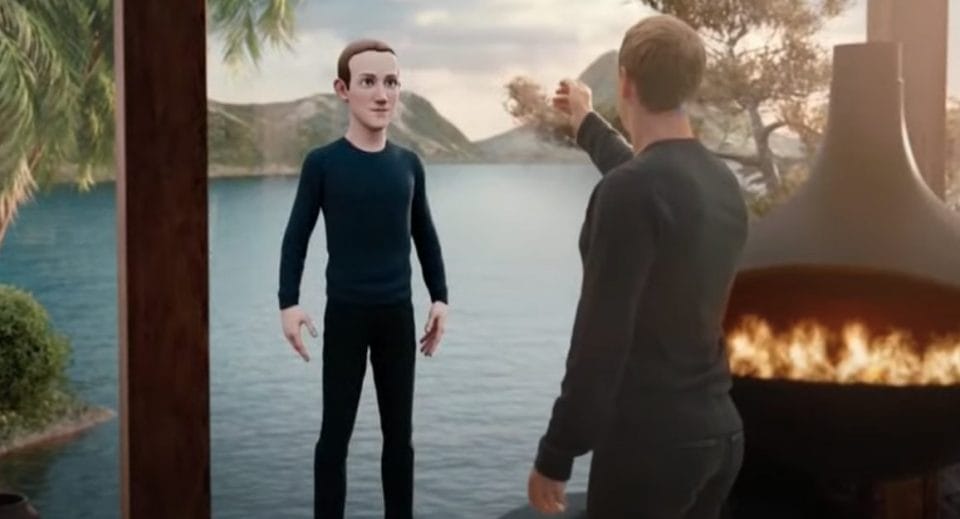
A screenshot of the Metaverse presentation by Mark Zuckerberg on October 28, 2021 (Image Courtesy of Meta)
The line between fiction and reality finally blurred on October 28, 2021,when Meta, previously known as Facebook, announced the development of the Metaverse — a combination of multiple technology elements, including virtual reality, augmented reality and video where users “live” within a digital universe. As part of what researchers coin as Web 3.0, the development of the Metaverse foresees the decentralisation of the digital age in which society enters an era of ‘network fever’.
Like in The Matrix, where humans live out their lives within as imulated reality, the dense and multi-layered volume network creates opportunities for culture and design all at once without interference from real-life affairs. Author Neal Stephenson is credited with coining the term “Metaverse” in his 1992 science fiction novel “Snow Crash,” in which he envisioned lifelike avatars who met in realistic 3D buildings and other virtual reality environments.
While the Metaverse is far from reality still, it is Stephenson’s brief mapping of its possibilities that inquires particular speculation: what shall we do with the spaces within the Metaverse?
Strangely, the sophisticated invention of virtual worlds might be as beneficial to users as it is to urban planners who could use these spaces as bothan insight and a tool for urban redevelopment — particularly for future smart cities. In a 2021 peer-review, researchers Zaheer Allam, Ayyoob Sharifi, Simon Elias Bibri, David Sydney Jones, and John Krogstie inquired about the emerging products and services of the Metaverse. They discovered that there may be “potential contributions to smart cities concerning their virtual incarnation, with a particular focus on the environmental, economic, and social goals of sustainability.”
The paper also hastened to add that “the Metaverse (could) have unprecedented impacts on simulating and modelling events such as floods, bushfires, energy demands in view of changing urban population, traffic movements, climate change variables, and other pertinent concerns for the urban planning discipline. ”The arrival of the Metaverse also anticipates the need for critical urbanresource management, which has already been committed and adopted by several cities today.
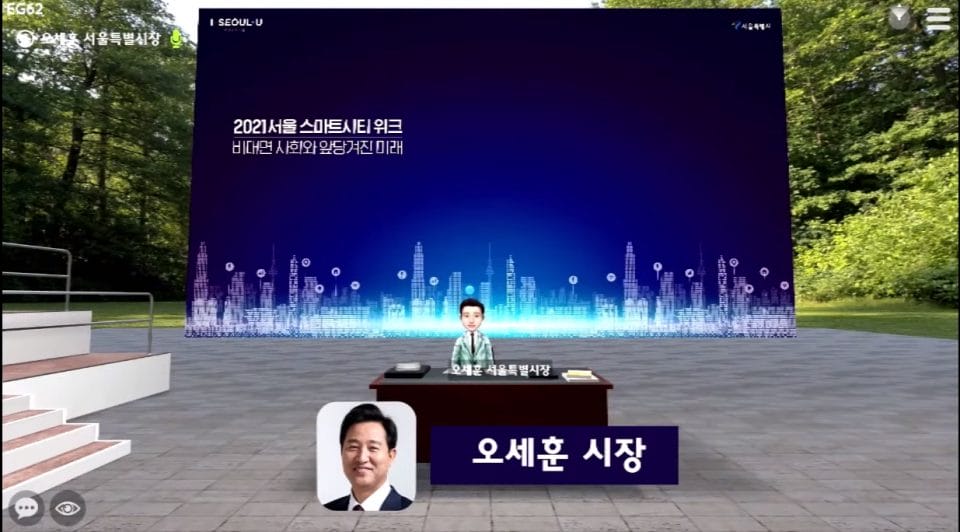
Beginning in 2023, the city of Seoul, South Korea will utilise the Metaverse for several government administrations and tourism (Image Courtesy of Seoul City Government)
The paper highlights Seoul, South Korea, as it punches over its weight in this arena with its proposal to embrace the Metaverse concept by availing somepublic services and cultural products in a digital environment. VR headsets and AR glasses will be used to offer residents of Seoul immersive experiences as they tour some of the city’s assets, including virtual social halls, museums, and parks, and the usage of government services like filing civil complaints, raising questions about space management and the rapid population growth of the city.
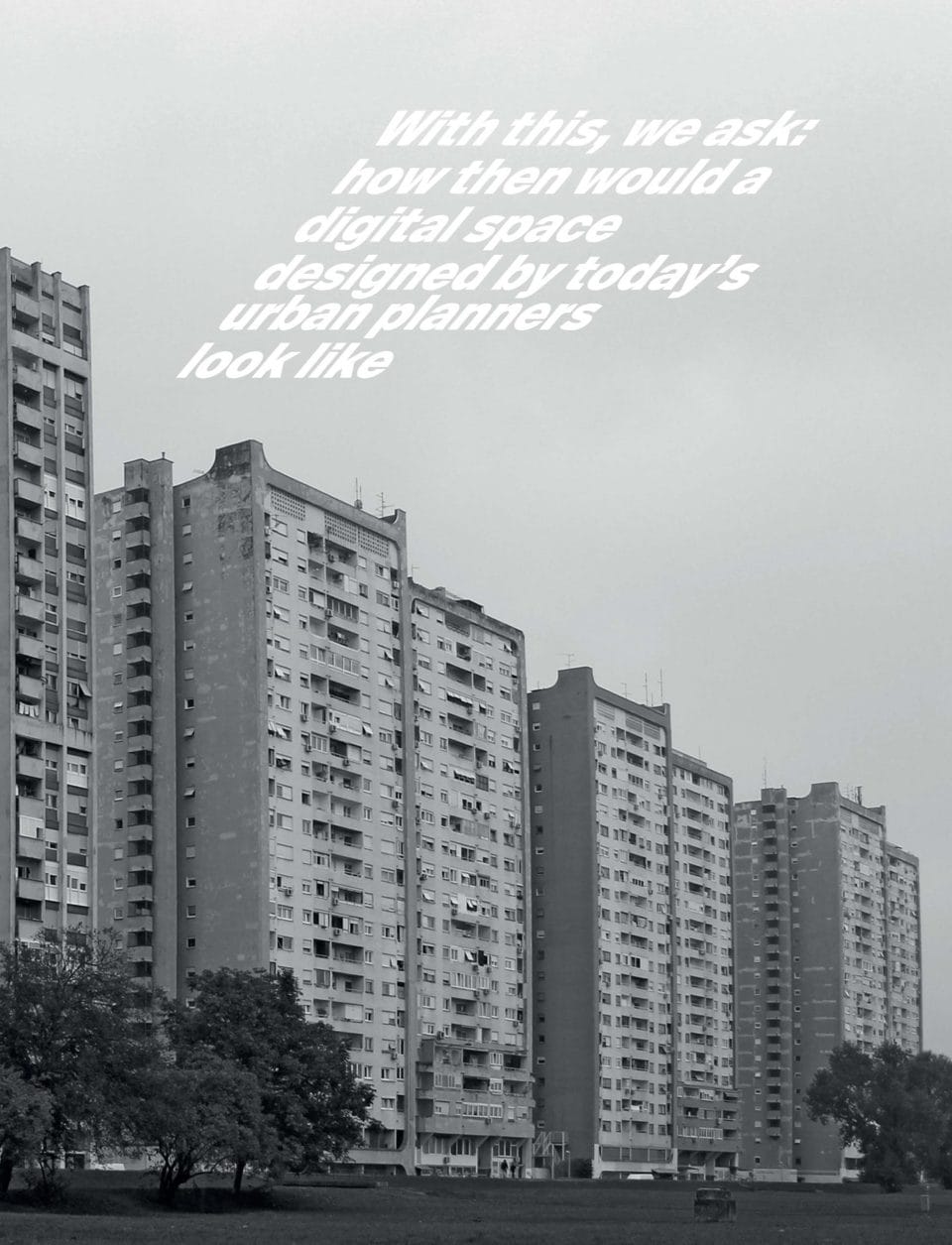
Before considering the opportunities for urban planning within the Metaverse,could you lean us in on what a smart city means to you? And in addition, what a smart Singapore means to you?
I believe a smart city is a reflection of its society, and a smart society will optimise the city’s function and improve the urban environment through technology. Singapore is a small city-state that has positioned itself as a living laboratory for a smart city. A smart Singapore will mean a better and more optimised city for its residents. It will also mean that Singapore will be in a better position to assist other cities in using technology to improve the city’s function and environment.
What happens then when we’ve achieved a smart city?
A smart city is not something static that we will achieve — it is a moving target. Smart cities will constantly evolve following their societal and technological advancements. For instance, Singapore is already a smart city and the term’ smart city’ will be the default for every city as the population constantly embraces technology. But how smart — or rather what technologies are applied in different cities — will always depend on the society, lifestyle, needs, culture and the contemporary economy.
The Metaverse, particularly in urban planning and real estate, often leans towards space management and expansion — alleviating land and traffic constraints of cities by operating several services in virtual spaces. Considering real-world issues in Singapore, do you think that might work? And if so, how might that be beneficial for Singapore?
The Metaverse simply adds a digital realm into the physical world we live in today. I do not think that itwill replace the physical realm, although, to some extent, it will reduce the needfor certain physical spaces at some point. For instance, large-scale concerts orevents may be popular in the Metaverse, which is an easier, greener and cheapersolution. People will also opt to shop in the Metaverse for goods, but some may still hope to do so in physical stores for luxury goods. Such scenarios will deeply affect how we use our space in the physical world when the Metaverse arrives.
How the Metaverse might benefit Singapore could be seen beyond providingdigital spaces for land-scarce Singapore. It should be seen from its economic benefitsfor businesses in Singapore. Considering Singapore is one of the frontrunners inmanufacturing and research for smart technologies, it will easily make Singapore oneof the strong players in the Metaverse and the opportunities for Web 3.0 businesses.
Some might say the Metaverse reflects reality, and we are limited to whatwe can imagine. Will it look any different than the cities we are familiar with today?
The Metaverse should not be seen as a single digital world designed for everyone but as many digital worlds, each with a different look, feel, and structure depending on the purpose and imagination of its creator. Ido agree that some realms in the Metaverse might look like the physical world we know today, but most of it will resemble something beyond the physical world we know today, beyond the limits of our imagination, a ‘dreamland’. This is definitely because the options to create or design digital worlds are limitless.So, it all depends on the intention or business model of the developer/designer.
Another point to note is that in today’s physical world, a detrimental factor in its design is roads and paths to move and navigate from one place to another, but as it is envisioned in the future or the digital realm, ‘teleportation’ to move from one place to another is possible. Thus it is not necessary to have these roads in Metaverse design — thus making it look. completely different from what we know. The thing that will drive the growth of the Metaverse stems from the economy — largely businesses. The owner or developer of the different digital world will design it to attract ‘traffic’, visitors, followers or users, as these will create business opportunities and increase the “property value” within those Metaverses.
Like in the real world, the design of a successful Metaverse reflects the needs of the community of that Metaverse.
What might a virtual city— relaxed of environmental factors — look like to you? I would imagine it as an interesting case of design by social factors. What are your thoughts? The thing that will drive the growth of the Metaverse stems from the economy — largely businesses. The owner or developer of the different digital world will design it to attract ‘traffic’, visitors, followers or users, as these will create business opportunities and increase the “property value”within those Metaverses. Like in the real world, the design of a successful Metaverse is a reflection of the needs of the community of that Metaverse.
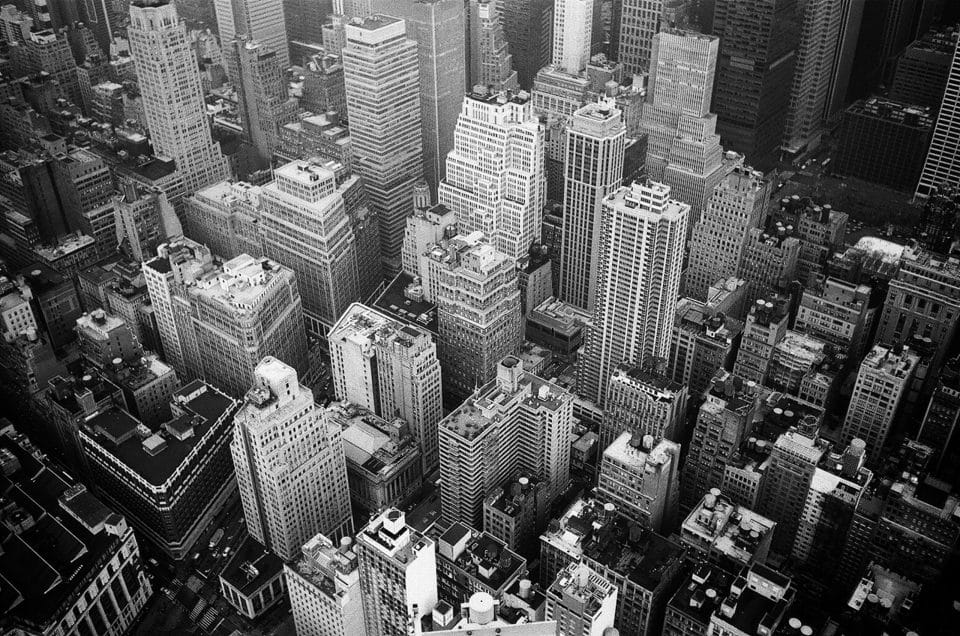
With that in mind, how do you think a virtual world might affect the design of physical cities?
The design of the virtual world may not affect the design of a physical city directly, although more urban studies will be done in the virtual realm in the future, and we will be able to learn more things from the Metaverse.
With limitless opportunities for space and design, do you think real estate could expand into the realms of the Metaverse? How do you think that might work?
Real estate is already happening in the Metaverse; some Metaverse developers are already selling land, and people are actually purchasing them —some out of speculation as the space for sale in Metaverse is limited and some out of a belief that the Metaverse will generate huge traffic that brings various business opportunities in the future. The property in Metaverse gives the benefit for the owner to create ‘content’, similar to what we have in the physical realm.
Do you think virtual spaces might solve the issues we face in the real world? What negative repercussions can you currently think of with the expansion of urban planning and the Metaverse?
Virtual spaces will not solve the issue we face in the world, and though they may reduce them to some extent, they will add another dimension to life and businesses. It will definitely add more options for people to spend their time, recreate, socialise and grow businesses in the digital world. The drawback is that people will move less and exercise less as they don’t need to put much physical effort into moving around the Metaverse. People may also be socially distant in the real physical world. This will not be good for human health, social life and wellness.
Lastly, perhaps most importantly, would you want whatever we have discussed to eventually happen?
The thing is, it has already begun. Whatever we discussed in this interview is already happening or is in the process of taking shape as many investors have embarked on the Metaverse. What we do not know is how it will eventually take shape. For instance, during the formation of Web 2.0, many jumped and invested in the internet business, and many were successful, but some also went bankrupt due to various reasons. Similarly, many people will also invest in the Metaverse, and some will definitely succeed, but many will also fail. We need all of this until the right model comes along and refines the future of Web 3.0 and the Metaverse.
This story first appeared in our October 2022 issue. Once you’re done with this story, click here to catch up with our May 2023 issue.







